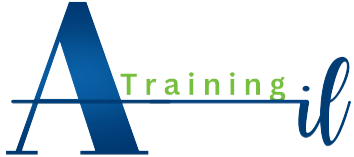For Organizations
For Organizations at AIL Training
At AIL Training, we understand the unique challenges that organizations face in today’s dynamic business environment. Our specialized programs are designed to enhance leadership skills, improve team dynamics, and foster a culture of excellence within your organization. Whether you are looking to empower your team, develop leadership capabilities, or manage conflict and stress, our comprehensive training solutions can help.
Empowerment
Empowering your team is crucial for fostering innovation and driving success. Our empowerment programs focus on:
- Building Autonomy: Encourage employees to take initiative and make decisions independently.
- Fostering Accountability: Develop a culture where team members take responsibility for their actions and outcomes.
- Enhancing Confidence: Boost the confidence of your team members through skill development and positive reinforcement.
Leadership Skills
Effective leadership is the backbone of any successful organization. Our leadership training programs are designed to:
- Develop Core Leadership Qualities: Enhance essential leadership skills such as communication, decision-making, and strategic thinking.
- Promote Adaptive Leadership: Teach leaders how to adapt their style to meet the needs of their team and the organization.
- Encourage Inspirational Leadership: Inspire leaders to motivate and guide their teams towards achieving organizational goals.
Emotional Resilience
Emotional resilience is key to maintaining productivity and well-being in the workplace. Our programs focus on:
- Stress Management Techniques: Provide practical strategies for managing stress and maintaining emotional balance.
- Building Emotional Intelligence: Enhance the ability to understand and manage emotions, both personally and within the team.
- Promoting Mental Health Awareness: Raise awareness about the importance of mental health and provide resources for support.
Work-Life Balance
Achieving a healthy work-life balance is essential for employee satisfaction and productivity. Our work-life balance programs include:
- Time Management Skills: Teach employees how to prioritize tasks and manage their time effectively.
- Wellness Programs: Implement wellness initiatives that promote physical and mental health.
- Flexible Work Arrangements: Explore options for flexible working hours and remote work to accommodate diverse employee needs.
Team Building
Strong teams are the foundation of a successful organization. Our team-building programs aim to:
- Enhance Collaboration: Foster a collaborative environment where team members work together effectively.
- Strengthen Communication: Improve communication skills to ensure clear and open dialogue within the team.
- Build Trust: Develop trust among team members through team-building activities and exercises.
Conflict & Stress Management
Managing conflict and stress is crucial for maintaining a positive work environment. Our programs offer:
- Conflict Resolution Techniques: Teach effective strategies for resolving conflicts and managing disagreements.
- Stress Reduction Strategies: Provide tools and techniques for reducing stress and promoting relaxation.
- Creating a Positive Work Environment: Cultivate a work environment that minimizes conflict and supports employee well-being.
Problem Solving & Decision Making
Effective problem-solving and decision-making skills are essential for organizational success. Our programs focus on:
- Critical Thinking Skills: Enhance the ability to analyze situations and make informed decisions.
- Creative Problem Solving: Encourage innovative thinking and solutions to complex problems.
- Decision-Making Frameworks: Provide structured approaches to making sound decisions under pressure.
Communication Skills
Clear and effective communication is vital for organizational efficiency. Our communication programs include:
- Effective Communication Techniques: Teach practical communication skills for various workplace scenarios.
- Active Listening: Promote active listening to ensure understanding and collaboration.
- Non-Verbal Communication: Improve awareness of non-verbal cues and their impact on communication.
Minus the Phone Culture
Reducing phone dependency can lead to more meaningful interactions and increased productivity. Our programs focus on:
- Encouraging Face-to-Face Communication: Promote in-person meetings and interactions.
- Limiting Phone Use: Implement policies and practices to reduce unnecessary phone use during work hours.
- Enhancing Productivity: Create a work environment that prioritizes focus and minimizes distractions.
